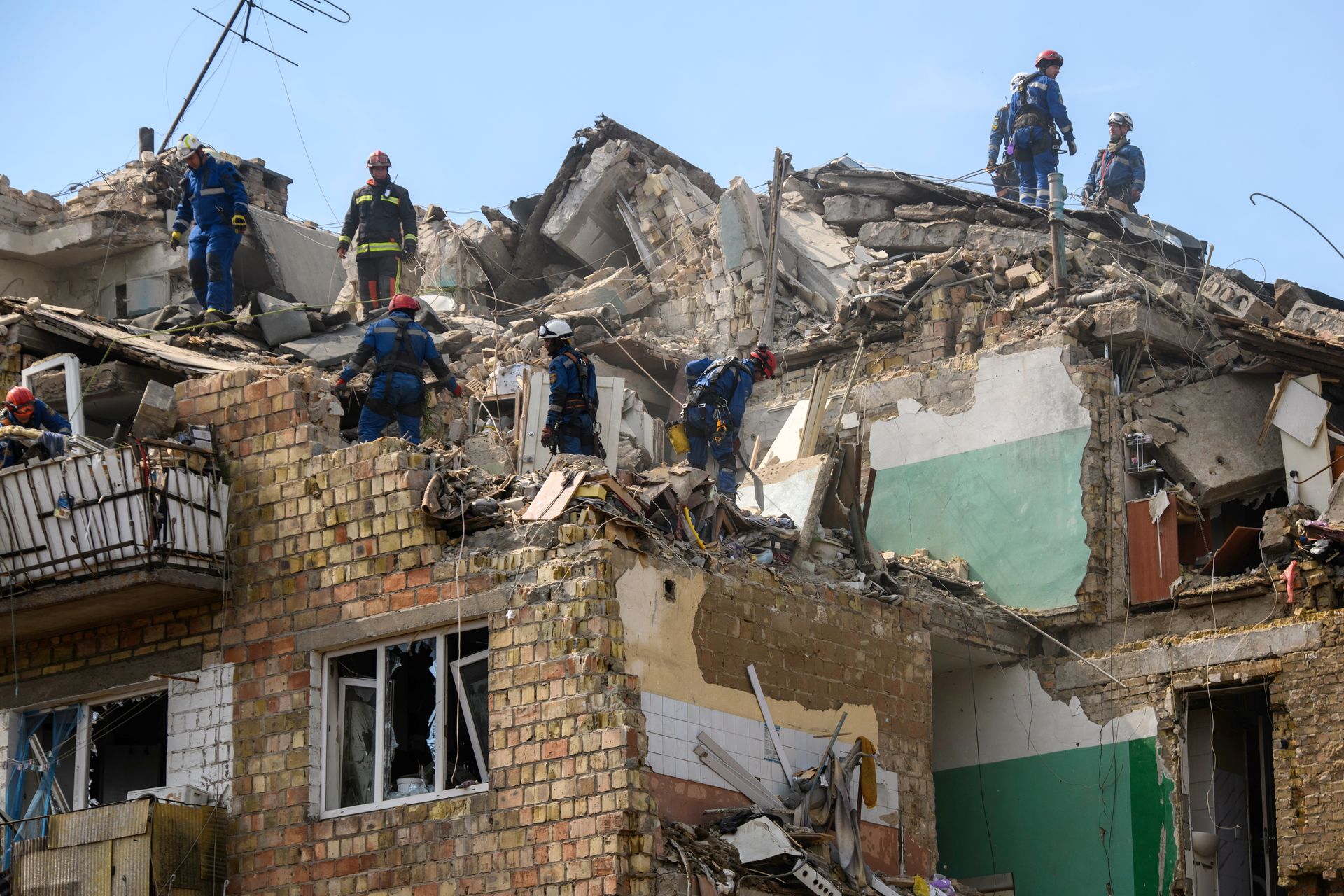Europe considering military buffer zone on Ukrainian territory, Politico reports

Europe is considering backing a 40-kilometer buffer zone as part of efforts to end Russia's war against Ukraine, Politico reported on Aug. 28, citing five European diplomats.
The buffer zone is being weighed by European leaders as an option for a ceasefire or postwar arrangement between Ukrainian and Russian forces, but Washington is not involved in the discussions, the five unnamed diplomats said.
The talks come as U.S. President Donald Trump intensifies efforts to broker a peace deal between Ukraine and Russia. The U.S. leader met with Russian President Vladimir Putin in Alaska on Aug. 15 and days later met President Volodymyr Zelensky and his European counterparts in the White House.
"Everyone is trying to move as quickly as possible on security guarantees so Trump doesn’t change his mind," one of the European officials said.
The proposal would likely be tied to territorial concessions from Ukraine, and it is unclear whether Kyiv is open to the plan, the diplomats said.
Some European countries have expressed that a buffer zone may cause more harm than good and put Ukrainian cities at a higher risk of a Russian attack.
"It’s not very sensible against an adversary who is not negotiating in good will," one of the unnamed diplomats said.
French and British troops are expected to make up a majority of the peacekeepers as the U.K. and France push for other allies to provide military equipment, two of the officials said.
From as few as 4,000 up to 60,000 peacekeepers could be stationed in Ukraine to secure a potential peace deal as Kyiv's allies hold off on making public commitments until key details emerge, Politico reported.
Ukraine's European allies are still determining how to respond to a Russian escalation, rules of engagement for NATO troops, and whether Russian objections will require non-alliance troops to patrol a potential buffer zone, one of the European officials said.
Peacekeepers would not only patrol the proposed demilitarized zone but would also train Ukrainian troops, two of the unnamed European diplomats said.
Meanwhile, NATO's eastern flank members, including Poland, have raised concerns that committing a large number of troops to Ukraine may degrade the alliance's eastern troop presence and leave them vulnerable to a Russian attack.
Although the U.S. has said it will not commit peacekeeping troops to Ukraine, it has said it could provide technical support as Europe waits for the U.S. Department of Defense (DOD) to outline what role Washington will play.
"Everyone is waiting for the DOD's policy leaders to clarify how far they are willing to commit, and they are letting the Europeans show their cards," a European official said.
Trump has proposed that Zelensky and Putin meet directly at a bilateral summit. The U.S. leader would then join the two for a trilateral meeting if talks went well.
Presidential Office Chief of Staff Andriy Yermak and Defense Council Secretary Rustem Umerov are heading to New York City this week to discuss security guarantees and future peace talks, Zelensky confirmed on Aug. 27, following media reports of the talks.
Despite intensified efforts to reach a peace deal, Russia continues to show an unwillingness to cooperate to end its war against Ukraine.
In May, Zelensky invited Putin to meet him directly for peace talks in Turkey, but the Russian leader refused.
On Aug. 24, Russian Foreign Minister Sergey Lavrov said Moscow will not accept Zelensky's signature on legal documents establishing terms for an end to Russia's war. The Kremlin has repeatedly questioned the legitimacy of Zelensky's power.
Overnight on Aug. 28, a massive Russian missile and drone attack on Kyiv killed at least 23 people, including four children, and injured another 63.












